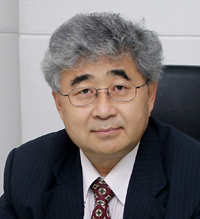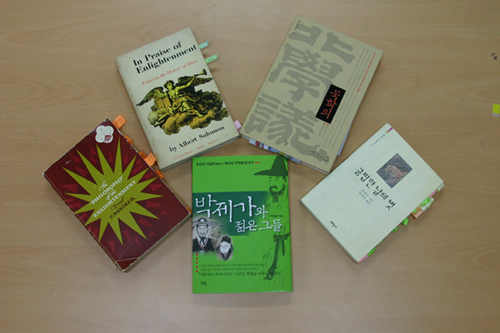
Pak Chega(1750-1805) was the most vehement reformist Sirhak(Practical Learning) scholar in Eighteenth-Century Chosun Korea. In a sense Korean Sirhak was equivalent to European Enlightenment in the Eighteenth-Century in that these two movements were both modernity-oriented. They shared basic ideas of modernization: the advocacy of modern rationalism, the belief in material scientific progress, and the case for promotion of industry and commerce.
A recapitulation of European Enlightenment may be helpful in understanding Korean Sirhak. Characterized by the wide-ranging movement of philosophers, scientists, and other intellectuals, the Enlightenment was generalized conquest of wisdom on the viewpoint of European civilization. Europe in the 18th century certainly saw a growth in scientific knowledge and in the power to manipulate the nature of the earth. Advances in scientific knowledge promoted liberation from prejudice and superstition, and also via modern science and technology, from helpless subjection to forces of nature. Moreover, the increasingly confident assertions of human autonomy were reinforced in political and economic spheres through the renovation and innovation of tradition and authority. In other words, modern Enlightenment intellectuals in the 18th century strongly believed in material progress, industrial development, scientific knowledge, civilized morality and political freedom. In this essay, I hope to trace the striking similarities between European Enlightenment and Korean Sirhak by way of rereading the writings of Pak Chega, the most modern Sirhak scholar, in terms of European Enlightenment.
The Korean Sirhak took on a decidedly modern outlook when it was embraced by a group of progressive enlightenment intellectuals such as Hong Taeyong(1731-1783), Pak Chiwon(1737-1805), and Pak Chega, also referred to as Pukhakpa(School of Northern Learning). The youthful, urbane, and erudite group excelled in verse and prose and shared many common ideas and ideals. The Pukhakpa members gathered together by the Enlightenment project of their reformist ideas, and they maintained a critical attitude toward the impractical teachings of Neo-Confucianism, the ineffective government civil service examination system and the lazy and corrupt ruling class called Yangban. Above all, they were all inspired in their thinking by the intellectual, social and cultural advancements made by the Ching China, from which the name, School of Northern Learning, derived. In this case the North was Ching China, influenced by Western Learning and accordingly, the Enlightenment.
The school of Northern Learning contended that Chosun Korea should learn much from the well-advanced and civilized Ching China in order to enlighten conservative Neo-Confucian scholars and modernize traditional pre-Enlightenment Korea. Claiming that the traditional and conservative Chosun failed to meet the challenges of enlightenment and modernity projects because of its recalcitrant and reactionary ruling classes, the School of Northern Learning argued for modernization along with the socioeconomic reforms of 18th-century Chosun Korea(1392-1910), a pre-modern agricultural kingdom based on Confucian principles. Pak, in particular, argued that the underdeveloped Chosun Korea should learn from Manchu China's technological, commercial and agricultural advances.
Among several Sirhak and Pukhak scholars, Pak Chega was by far the most modern advocate of Northern Learning. His four brief visits to Beijing as a member of a Korea delegation very much impressed Pak of the economic and technological advancements of Ching China. In 1776, Pak Chega wrote Pukhakoe(Discourse on Northern Learning) to enlighten King Chongjo(1752-1800). Pak's well-known proposal can be best summed up as "the method of maximizing usefulness for enriching the people's livelihood"
Pak Chega was both a radical socioeconomic thinker and a revisionist literary practitioner. Immediately after he visited Ching China, he wrote a progressive enlightenment book, Pukhakoe, in order to modernize pre-modern Chosun Korea. In his later poetic career Pak tried to combine his socio-political beliefs of "seeking maximum usefulness for the enrichment of the people's livelihood" with his pragmatic literary agenda. Through his Enlightenment Poetics, Pak tried to educate King Chongjo and the Yangban class in power to transform pre-modern Korea into a more civilized and rational society. In a sense, Pak's combinatory poetic strategy can be re-named "practical poetics."
Pak did not agree with "Art for Art's sake" but he believed in the ontology of poetry, that is, the autonomous status of organic structure in literature. Pak did not argue for the use of art as a means of moralizing and enlightening the world, but he could not ignore the socio-political function of art. Thus he strongly believed in the poetics of the "in-between" or cross-boundary. The combination of literary art and social project is characteristic of Pak's strategy of Enlightenment poetics. His dialogical combination of political economy and poetry resulted in a special kind of pragmatic poetics.
The Korean Eighteenth century was a pivotal period, in which the Chosun kingdom had an opportunity to make the turn from the traditional pre-modern to the progressive modern. Pak Chega was definitively a modernity-oriented intellectual and enlightenment writer, he put the bridge between the old fashioned world and the brave new world. But his contemporaries could not dare to cross the bridge. Their lack of true historical sense forced them to cling to the dark world of poverty, irrationality, and ignorance. So what can modern readers gain by reading Pak Chega? We can return to the very first idea of historical Enlightenment and acquire a new sense of universal Enlightenment at this historical juncture.
To conclude: the central theme of Pak Chega's version of Korean enlightenment was that of emancipation form the various fetters which had hitherto bound humanity in subjection and darkness: on the one hand, advances in scientific knowledge promote liberation from irrational prejudice and superstition, and via their technological application, from helpless subjection to forces of nature: on the other, the increasingly confident assertion of human rationality and autonomy was reinforced in the moral political and economic public spheres through the interrogation of traditional and arbitrary seats of human authority.

By Professor Chungho Chung
Department of English Literature, Chung-Ang University

